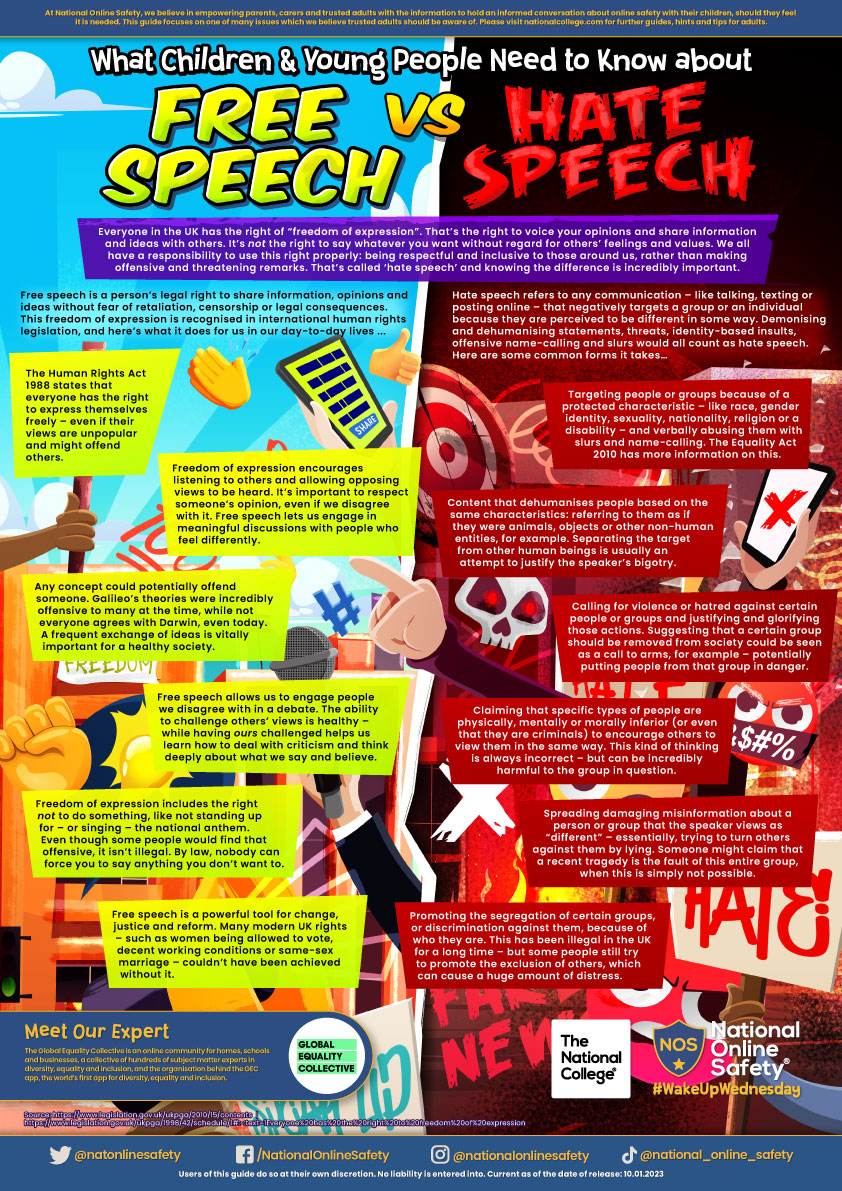
Freedom of expression is enshrined in international law. Some individuals, however, misunderstand the right to share their opinions as a license to target others with the most horrendous prejudice. So how do we balance people’s prerogative to have their voice heard against everyone’s right to live in a respectful, inclusive society?
This conflict frequently unfolds in the digital world. Online posters can be falsely accused of hate speech, while actual hate is often defended as merely being ‘free speech’. To help children and young people learn to identify the boundaries and recognise genuine hate speech when they see it, our #WakeUpWednesday guide provides some helpful definitions and guidelines.


.png)

